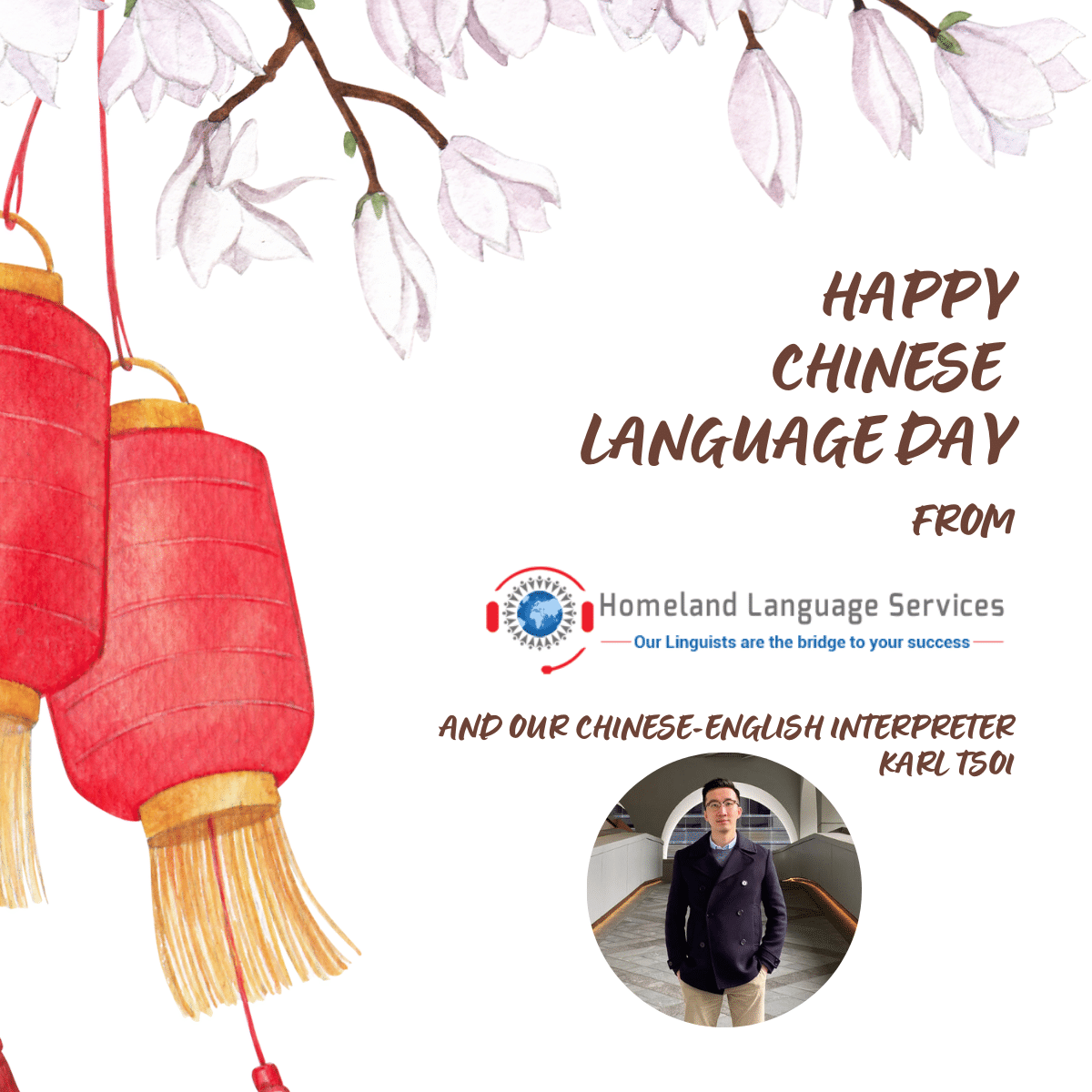April 20th is designated as Chinese Language Day by the United Nations to promote multilingualism and cultural diversity. As a language services provider, Homeland Language Services recognizes the importance of Chinese and all languages in the world. We recognize the crucial role that interpreters and translators play in facilitating communication between different cultures.
Interpreting and translating services are essential for businesses and organizations that work across borders, as well as for individuals who need to communicate with people who speak different languages. For example, companies that do business internationally require accurate and reliable translations of contracts, financial reports, and marketing materials to succeed in foreign markets.
Similarly, hospitals and medical facilities rely on interpreters to communicate with patients who do not speak the local language. They ensure that patients receive the best care at medical facilities and that medical professionals can accurately diagnose and treat their conditions.
In addition to facilitating communication, interpreting and translating services also help to promote cultural understanding and respect. When people can communicate effectively across language barriers, they can learn from one another and appreciate different cultures and ways of life.
At Homeland Language Services, we support language access for all. We value our interpreters and translators, who work tirelessly to ensure the communication is clear and accurate for our clients. Whether it’s Chinese Language Day or any other day, we are committed to providing high-quality language services to help bridge the communication gap between different cultures and languages.
We talked to our Chinese-English interpreter Karl Tsoi from Hong Kong about his way to become an interpreter.

- Karl, what inspired you to become a Chinese-English interpreter, and what do you find most fulfilling about this job?
- 我從小就喜歡語言,所以一直以來的夢想就是成為一名中英口譯員。我喜歡幫助人們溝通,衝破語言和文化的障礙,讓不同國家和文化的人能夠進行更好的交流和合作。 (Ever since I was a child, I’ve had a passion for languages, and my dream has always been to become a Chinese-English interpreter. I enjoy helping people communicate and breaking down language and cultural barriers so that people from different countries and cultures can have better communication and cooperation.)
- Can you describe a time when you encountered a challenging language barrier while interpreting, and how did you handle the situation?
- 擔任中英文口譯員時,有時會遇到一些挑戰。我曾經在一個商業談判中遇到一個特別困難的情況。當時,中方代表使用了一些非常特殊的行業術語和詞彙,這些詞彙在英語中沒有直接的對應詞。我立刻詢問中方代表有關詞彙的詳細信息,例如它們的含義和用途,然後隨即使用我腦海中的專業術語庫,找到最接近的英文詞彙。(As a Chinese-English interpreter, I sometimes encounter challenges. I once had a particularly difficult situation during a business negotiation when the Chinese representative used industry-specific terms and vocabulary that didn’t have direct English equivalents. I immediately asked for more information and used my professional knowledge to find the closest English terms.)
- Karl, how do you navigate cultural differences between the Chinese and English-speaking parties you are interpreting for, and what strategies do you use to ensure effective communication?
- 作為一名口譯員,我了解中英文化差異可能會令交流產生困難。為了解決這個問題,我一般採用以下2個策略:
1. 熟悉雙方的文化習俗和差異,預見可能出現的誤解,相應地調整口譯。
2. 保持中立和公正,不受其他因素影響。 (As an interpreter, I understand that cultural differences can pose a challenge to communication. To overcome this, I generally use two strategies:
1. Familiarizing myself with the cultural customs and differences of both parties to anticipate possible misunderstandings and adjust my interpretation accordingly.
2. Remaining neutral and impartial, free from any external influence.)
Chinese Language Day serves as a reminder of the importance of multilingualism and cultural diversity. We celebrate all languages and are committed to providing reliable and accurate language services to help facilitate communication and promote understanding across cultures.

